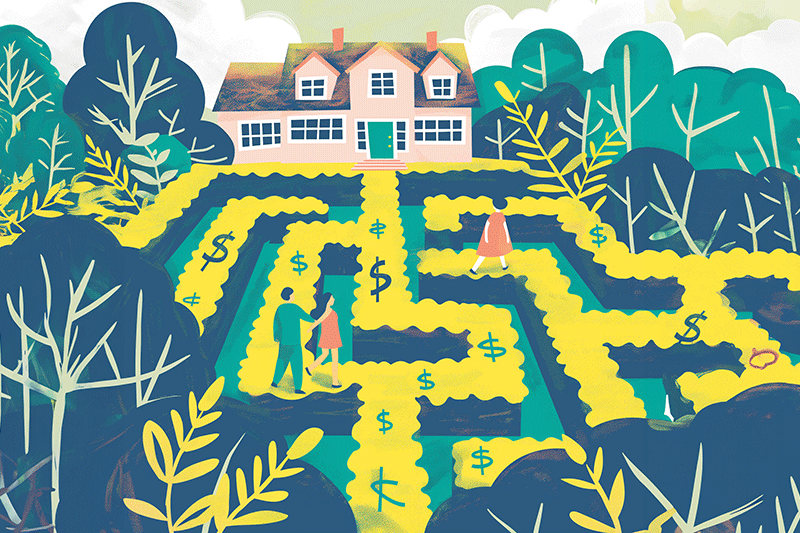Thompson Kane's team is dedicated to helping our community stay on top of the ever-changing…
Determining How Much House You Really Need: A Thoughtful Guide
When considering how much house you need, “just right” is usually a better baseline than “bigger is better” thinking. In this article, we explore factors that should shape your decisions as you seek the perfect-sized home.
Life Style & Quality
- The Significance of Location: Location plays a key role in figuring out how much house to aim for. In certain urban hubs, larger homes may command exorbitant prices. In such cases, travel time to work, schools, shopping or entertainment venues might take precedence over square footage.
- Family Dynamics & Future Plans: The size of your family and your future plans should be a core part of your decision-making process. A couple with dreams of growth may be focused on finding a home that can adjust to future needs. However, this agenda can challenge the desire to stay within a moderate budget. On the other hand, those with older kids or approaching retirement are often looking to scale back.
- Lifestyle & Passions: Reflect on your lifestyle and personal passions. Do you need a home office, want a spacious kitchen, or a generous backyard to nurture your gardening passion? Let your ideal home size align with your interests and activities.
Financial Considerations
- Financial Prudence: Your budget will be a key guide in the decision-making process. Opting for a larger home often translates to a larger mortgage, heftier property taxes, and increased maintenance costs. Therefore, a thorough evaluation of the costs a larger home might involve can help ensure your financial stability. Take a closer look at financial considerations in this helpful article on Investopedia.
- Maintenance Matters: Larger homes typically demand more extensive upkeep and cleaning. Therefore, if you’re not prepared for the time and money required to maintain a substantial residence, a more compact home might be a better match.
- Efficiency: Smaller homes tend to be more energy-efficient, with reduced utility expenses. When contemplating your home’s size, consider the long-term savings and the positive environmental impact of choosing a more modest dwelling.
- Resale Potential: While selecting a home that meets your present needs is vital, it’s always prudent to consider resale value. A well-maintained, smaller home in a sought-after neighborhood often appreciates more than a larger home in a location where demand is lower.
The quest for the right home entails a delicate equilibrium between your current needs, lifestyle preferences, budgetary constraints, and future visions. While a grand mansion may be alluring, remember that a thoughtfully chosen, smaller home can deliver comfort, financial security, and an enhanced quality of life. Thompson Kane’s expert mortgage lending team is here to empower you with insights to help ensure your new home harmonizes with your unique financial and lifestyle needs and aspirations.





